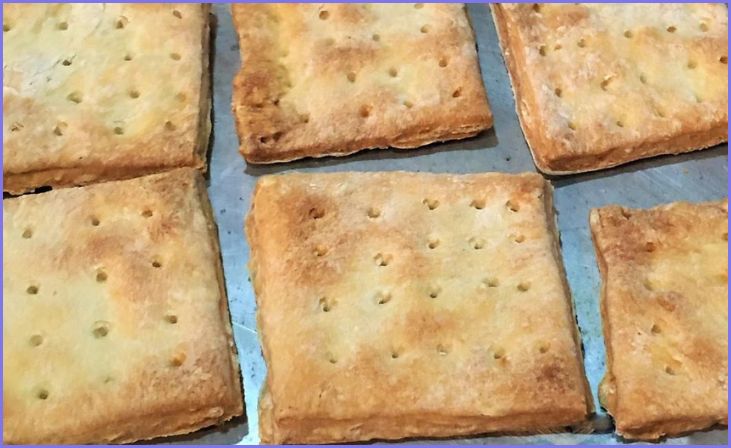Expiration-Free Foods – In a world grappling with the environmental and economic repercussions of food waste, the concept of Expiration-Free Foods emerges as a revolutionary solution. Conventional expiration dates contribute to massive food disposal, impacting both the planet and consumer budgets. This exploration delves into cutting-edge technologies, sustainable packaging, and shifts in consumer behavior to challenge the status quo.
By redefining our understanding of food freshness, implementing advanced preservation methods, and embracing genetic modification for extended shelf life, the potential for Expiration-Free Foods becomes increasingly tangible. As we navigate this landscape, ethical considerations and regulatory frameworks take center stage, emphasizing the need for a holistic approach to revolutionize the food industry.
Through case studies and a glimpse into the future, this exploration envisions a sustainable and ethical paradigm shift, where food products transcend traditional expiration limitations, benefiting both the global environment and our individual well-being.
Expiration-Free Foods
Honey

Honey, with its low water content and acidic pH, resists spoilage and can last indefinitely. Archaeologists have discovered edible honey in ancient Egyptian tombs dating back over 3,000 years. Stored in a cool, dry place, honey remains a natural, expiration-resistant sweetener due to its inhospitable environment for bacteria and microorganisms.
White Rice
White rice, when stored in a cool, dry place in an airtight container, boasts a lengthy shelf life. Its low moisture content inhibits bacterial growth, allowing it to last for many years.
Unlike brown rice, white rice’s extended storage potential makes it a reliable staple for long-term provisions. Properly stored white rice maintains its quality and nutritional value, making it a versatile and enduring food source.
Also, Read – Best Fast-Food Burgers in America
Salt
Salt, a timeless preservative, defies expiration. With its natural ability to inhibit bacterial growth, salt remains immune to spoilage. As long as it stays dry, this essential mineral can endure indefinitely. Archaeological evidence attests to the longevity of salt, as ancient salt deposits persist for centuries.
Beyond its culinary role, salt’s preservation properties have historically made it a valuable commodity. Stored in a cool, dry environment, salt stands as a perpetual seasoning, adding flavor and safeguarding against decay.
Sugar
Sugar, a perpetual sweetener, defies spoilage when stored in a cool, dry place. Its low water content and resistance to microbial activity contribute to an extended shelf life. As a versatile ingredient, sugar remains indefinitely viable, offering sweetness to countless culinary creations.
Archaeological finds demonstrate its enduring nature, revealing well-preserved sugar remnants from ancient civilizations. Whether used in baking or as a preservative, sugar’s stability prevails over time. Proper storage ensures this kitchen staple remains an everlasting component in both pantry and historical contexts.
Hardtack

Hardtack, a durable ration with origins dating back centuries, is a simple, dry biscuit designed for longevity. Composed of flour, water, and salt, its minimal ingredients contribute to a prolonged shelf life.
A staple for sailors and soldiers, hardtack’s resilience against spoilage and pests made it a reliable sustenance during long journeys. Stored in airtight containers, hardtack can endure for years, providing sustenance in challenging conditions.
While its hardness may require soaking or cooking for consumption, hardtack’s enduring nature has solidified its place in historical and survival contexts, showcasing the intersection of simplicity, longevity, and sustenance.
Dried Beans and Lentils
Dried beans and lentils, pantry powerhouses, exhibit impressive longevity when stored in a sealed, cool, and dark environment. With their low moisture content, these legumes resist spoilage, extending their shelf life for several years. Rich in protein and essential nutrients, they serve as resilient, nutritious staples in diverse cuisines.
Their enduring quality makes them valuable assets for long-term food storage, offering sustenance in various culinary applications. Whether added to soups, stews, or as standalone dishes, the extended viability of dried beans and lentils enhances their role as dependable, nutritious ingredients for sustained and reliable culinary practices.
Also, Read – Best Anti-Ageing Foods To Avoid Wrinkles
Instant Coffee and Tea
Instant coffee and tea, favored for convenience, also boast an extended shelf life. The dehydration process involved in their production contributes to their stability. Stored in airtight containers away from moisture and light, these soluble powders can endure for a prolonged period without losing safety or drinkability.
While flavor might diminish over time, the fundamental characteristics remain intact. This longevity makes instant coffee and tea practical choices for both everyday use and emergency situations, ensuring a reliable and accessible source of caffeinated beverages even when fresh alternatives may be scarce.
Powdered Milk
Powdered milk, a versatile dairy product, proves resilient with a lengthy shelf life when stored in a cool and dry environment. The dehydration process removes moisture, preventing bacterial growth and spoilage. Properly stored, powdered milk retains its nutritional value for an extended period, making it a valuable addition to emergency food supplies.
Its enduring nature ensures a consistent source of milk for cooking, baking, or reconstitution into liquid form. From its convenience in storage to its versatility in various culinary applications, powdered milk stands as a dependable and long-lasting dairy option, bridging the gap between freshness and shelf stability.
Canned Foods
Canned foods, a staple in long-term food storage, offer enduring edibility when stored in cool, dark conditions. While not truly expiration-free, their airtight seals and thermal processing provide extended shelf life.
Canned vegetables, fruits, and meats can remain safe and nutritious for years, retaining flavors and textures. Regular inspection for signs of damage, such as bulging or corrosion, ensures their continued safety.
With a diverse array of options, from soups to fruits, canned foods stand as reliable and convenient choices for emergency provisions, showcasing the marriage of preservation technology and culinary convenience for sustained nourishment over time.
Pemmican

Pemmican, a traditional survival food, blends dried meat, rendered fat, and sometimes berries into a resilient, energy-dense concoction. With its low water content and high nutritional density, pemmican boasts an impressive shelf life.
The combination of dehydration and fat preservation techniques creates a food source that resists spoilage, making it an enduring sustenance for various cultures throughout history.
Stored in a cool, dry place, pemmican remains a testament to resourcefulness and longevity, offering a portable and resilient solution for sustaining energy and nutrition in challenging environments or as a backup in modern emergency preparations.
Conclusion
In conclusion, the pursuit of Expiration-Free Foods marks a transformative journey toward a more sustainable and responsible food future. By embracing innovative technologies, sustainable packaging, and reshaping consumer perspectives, we can mitigate the environmental impact of food waste and enhance food security. While challenges and ethical considerations persist, the vision of a world without arbitrary expiration dates remains within reach.
As we move forward, a collective commitment to research, regulation, and responsible consumption holds the key to unlocking a future where the lifespan of our food aligns harmoniously with our aspirations for a healthier planet and society.
FAQs
Unlike conventional foods with fixed expiration dates, Expiration-Free Foods employ cutting-edge technologies, genetic modifications, and sustainable packaging to minimize spoilage, reduce food waste, and extend their freshness.
Technologies such as high-pressure processing, vacuum packaging, modified atmosphere packaging, nanotechnology for antimicrobial properties, and genetic modification play key roles in extending the shelf life of Expiration-Free Foods.
Yes, Expiration-Free Foods contribute to environmental sustainability by reducing food waste, minimizing the need for excessive packaging, and promoting circular economy practices.







